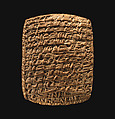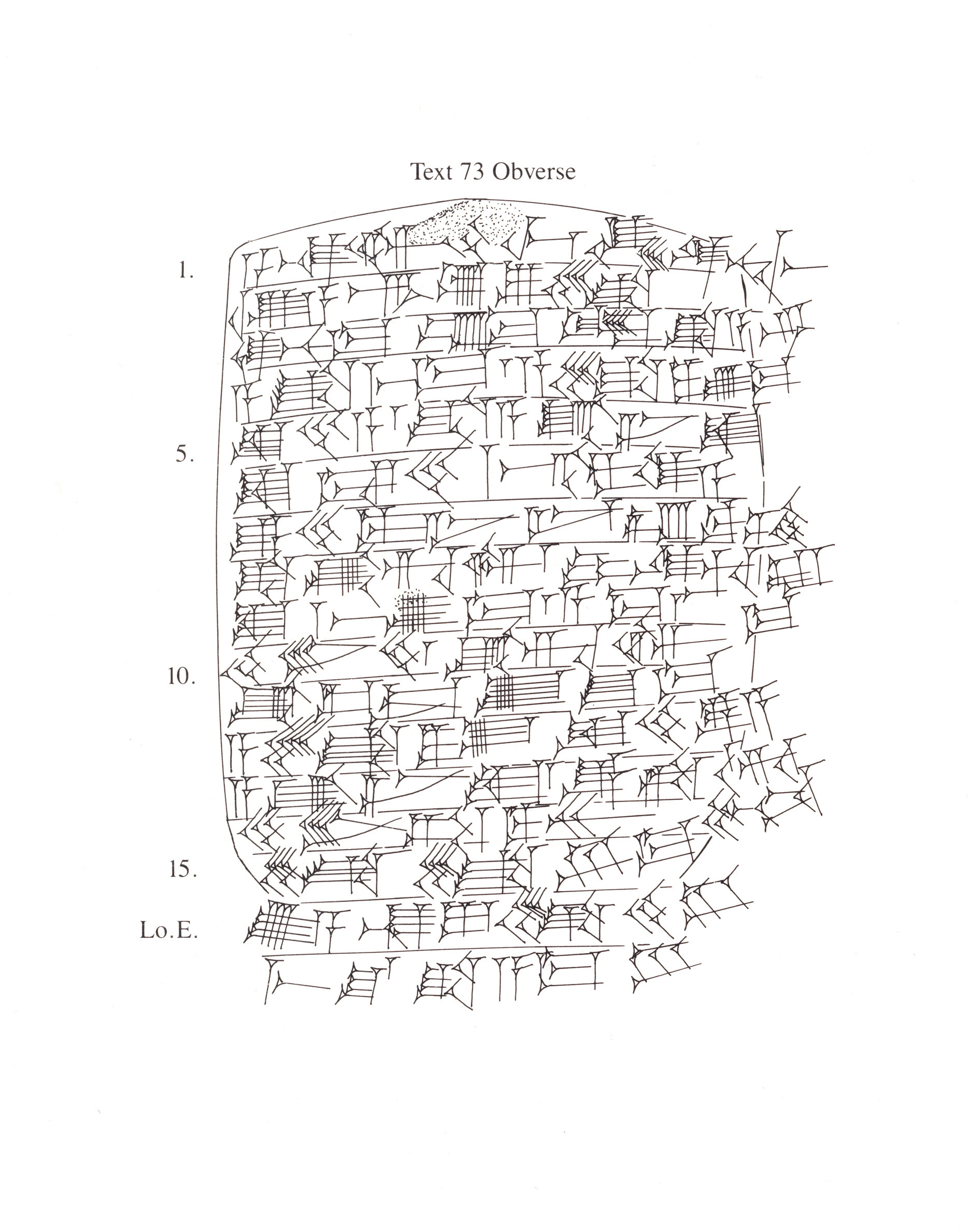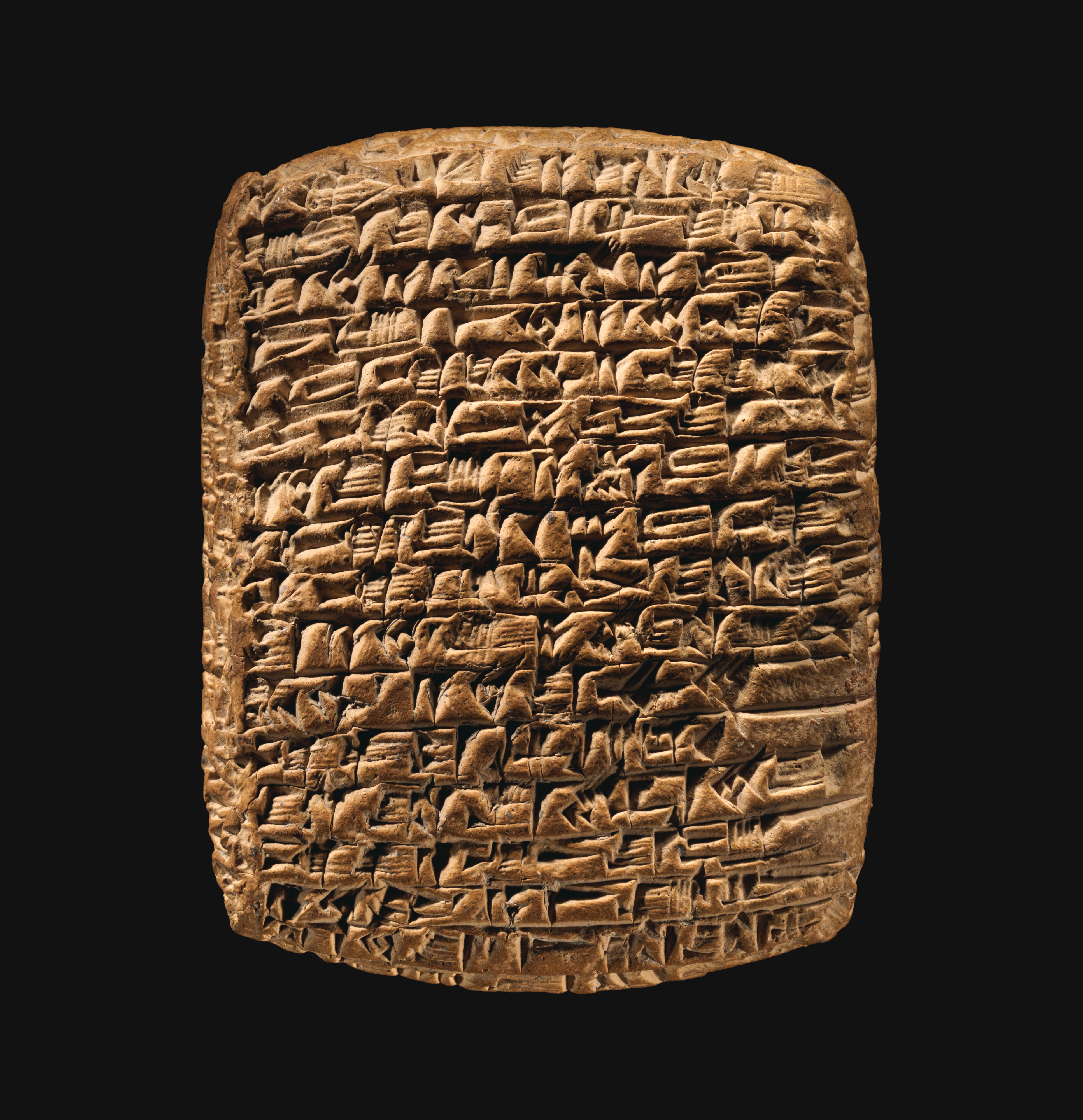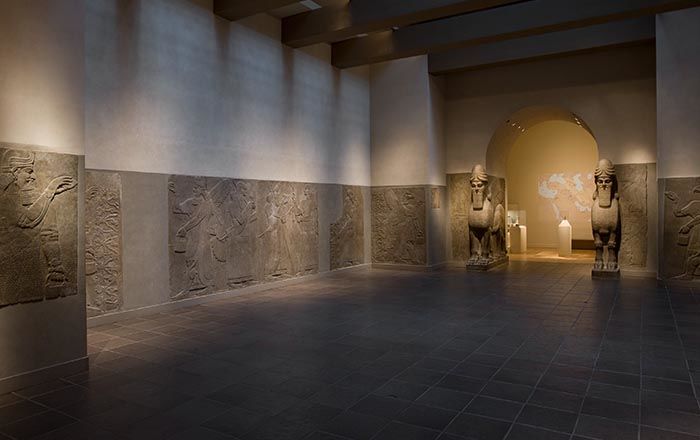Cuneiform tablet: private letter
Not on view
Kültepe, the ancient city of Kanesh, was a powerful and cosmopolitan city located in northern Cappadocia in central Anatolia. During the early second millennium B.C., it became part of the network of trading settlements established across the region by merchants from Ashur (in Assyria in northern Mesopotamia). Travelling long distances by donkey caravan, and often living separately from their families, these merchants traded vast quantities of tin and textiles for gold and silver in addition to controlling the copper trade within Anatolia itself. Although the merchants adopted many aspects of local Anatolian life, they brought with them Mesopotamian tools used to record transactions: cuneiform writing, clay tablets and envelopes, and cylinder seals. Using a simplified version of the elaborate cuneiform writing system, merchants tracked loans as well as business deals and disputes, and sent letters to families and business partners back in Ashur. These texts also provide information about the greater political history of Ashur and the Anatolian city-states as well as details about the daily life of Assyrians and Anatolians who not only worked side-by-side, but also married and had children together. At Kültepe, thousands of these texts stored in household archives were preserved when fire destroyed the city in ca. 1836 B.C. and provide a glimpse into the complex and sophisticated commercial and social interactions that took place in the Near East during the beginning of the second millennium B.C.
Many of the tablets discovered in the merchants’ private archives were letters. This cuneiform text, read from left to right, is one of many comprising the correspondence of the Imdi-ilum family firm. Written by the merchant Puzur-Ashur to his three brothers, including Imdi-ilum (1888 and 1876 B.C.), it mainly concerns a business dispute between Puzur-Assur and Imdi-ilum’s son. Puzur-Assur also expresses worry for his travel companions, who allegedly have been detained before reaching their destination of Kanesh, and asks his brothers to send any news they may have on the matter. Such letters demonstrate the high volume of correspondence necessary to facilitate complicated business affairs across great distances. A caravan account also in The Metropolitan Museum of Art’s collection (66.245.10) concerns shipments organized by the same merchant firm.
Due to rights restrictions, this image cannot be enlarged, viewed at full screen, or downloaded.
This artwork is meant to be viewed from right to left. Scroll left to view more.





